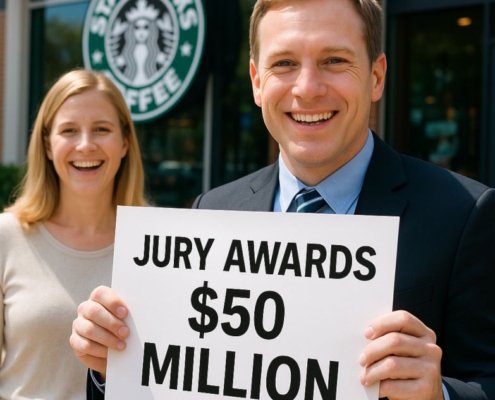Introduction
One of the world’s best esports players is at odds with his team over what he claims is one of the most awful contracts in the history of talent, but his employers don’t agree. Fortunately, we have the real contract and can disclose the information that led to the FaZe Clan implosion.
The Gamer Agreement between Turner “Tfue” Tenney & FaZe Clan, which details the amount of cash the gamer must forfeit from his lucrative sponsorship and tournament earnings, was obtained by The Blast from a non-FaZe source.
After the legal action was filed, FaZe leader Banks publicly accused Tfue of being an ungrateful liar, despite Tfue’s claims that FaZe should receive 80% of the money from the sponsorship deals. Additionally, banks disclosed data indicating that, out of $300,000 in transactions with outside vendors, they had only received $60,000. He added that none of Tfue’s tournament prizes have been collected by FaZe.
We have obtained the actual deal because Banks threatened to leak Tfue’s agreement, but he never did.
The Tfue FaZe Contract, which seems to permit FaZe to enter at any time and take as much as eighty percent of Tfue’s money as they see appropriate, is the main source of contention.
The Agreement
The agreement is a “Gamer Agreement” that was signed on 27th April 2018.
The “first Term of the Tfue FaZe Contract shall be a duration of six months from the Starting Date (“Term”),” it states. This Agreement will automatically be extended for a further thirty-six months at the conclusion of the Term, regardless of anything to the contrary stated in this document (including the Terms and Conditions), as long as the following requirements are fulfilled.
Engage in team activities, such as training sessions and competitions, represent the team at events organized by the company or in which the company chooses to participate, and offer media and marketing support as needed by the company.
In other words, after his first six months, Tfue was practically immediately tied in with FaZe for a period of three years.
Compensation
In addition to “all other revenue (which includes, but not restricted to, salaries, earnings, charges, royalty payments, incentives, share of earnings, and offerings, etc.) generated while working with Gamer’s activities (whether as an individual or as part of the group),” the contract stipulates that FaZe shall pay Tfue “$2,000 each month” as a set amount.
The way the money is distributed is Tfue’s primary grievance with the Tfue FaZe Contract:
- Sticker or in-game (creator code revenue) 50% to the company and 50% to the gamer
- Brand agreements involving the gamer that are present on the gamer’s or the business’s social media accounts or video production platforms (like Twitch or YouTube), if the gamer brings the agreement to the company: 50% to the company and 50% to the gamer;
- Brand agreements involving the gamer that are present on social media platforms or on the gamer’s or company’s video production platforms (like Twitch or YouTube), if the company brings the arrangement to the gamer: 80% to the company and 20% to the gamer.
- After paying the team coach, the gamer will divide all earnings from monetary awards (each a “Prize” and all together “awards”) gained in tournaments or matches as follows: The gamer receives 80%, while the company receives 20%.
FaZe Clan is explicitly entitled to 80% of any advertising deals that Tfue brings to the forum, as well as half of the creator code revenue, according to the terms of the agreement. The fact that the firm receives half of the income even if Tfue brought in business is also made apparent.
“Creator code income” can reach enormous heights in the gaming business. Tfue’s annual salary is reportedly close to $10 million, according to our sources.
The sole 80/20 divide in which Tfue gets the majority of the money is from tournament prize money.
Since the Tfue FaZe Contract gives FaZe Clan the right to gather on their share at any time, we’ve been informed that Tfue’s team has serious concerns about these figures and percentages. In accordance with the terms of the contract, they also reserve the authority to collect on Tfue’s highest earnings.
Touring and Team Merchandise
According to the deal, 20% goes to the gamer & 80% goes to the company for “anything (containing Gamer or Gamer’s image), unconnected to FaZe Clan items and gear, made by or in combination or collaboration with Company.”
50% goes to the gamer and 50% goes to the firm for appearances, tours, sign-up bonuses, and other such activities.
Period of Exclusivity and Matching Rights
Tfue’s contract contains an exclusivity clause that gives FaZe the power to match any offer from another gaming team and requires him to disclose the identity of any team submitting an offer. Tfue and his lawyers reportedly believe this is an unjust procedure.
It says, “After lawfully terminating the agreement, if Gamer gets an offer from a different ‘Fortnite’ group to join that team, Gamer shall be required to give the Offer to Business and reveal the name of the entity providing the Offer. The company will have the option to match such an Offer within fifteen business days after the Company actually receives the proposal (the “Matching Right”).
Company will instantly have sole access to Gamer’s services on the identical basis as the Offer, as well as every other provision of the Agreement, if Company decides to use the Matching Right and notifies Gamer within the allotted fifteen working days.”
Termination
According to a specific termination provision in the Tfue FaZe Contract, if Tfue is fired for good reason, he will be forced to sit out six months of competitive video game play.
It reads, “If the gamer’s serious misconduct gets him terminated, the gamer will not be allowed to play video games commercially or publicly (online or in live competitions) for six months after the termination date.”
If FaZe chooses to fire Tfue, the agreement essentially stops him from receiving any money.
Confidentiality
Tfue’s contract, which is a component of FaZe Clan, clearly outlines what must be kept private and restricts what he may say to the public.
It says, “Gamer or Gamer’s staff will not release any press releases or make any other declarations in the press (including, without limiting any online or print announcements) regarding Gamer’s offerings, the Team, the organization, its subsidiaries, its agents or staff members, or any other entity involved in the provision of the Services (e.g., the advertisers) without prior authorization in writing from the Company.”
Tfue faces a fine of as much as 125 percent of his monthly salary if he is later found to have violated the secrecy notice. “In addition to the aforementioned, Gamer hereby consents to pay the business a cash sum equal to 125 percent of the monthly payment, plus any and all transportation costs incurred by the business, in the event that Gamer fails to perform its duties at a LAN Tournament or violates Gamer’s obligations of confidentiality under the confidentiality clauses of this Agreement,” it states.
Present-Day Conflict
Although Tfue & FaZe Clan are currently at war, there is a possibility that the conflict will intensify.
According to our sources, Tfue’s team thinks the entire deal is void for a number of reasons.
First, they think FaZe Clan is acting as a talent agency company even though they don’t have the necessary licensing. In addition, the Hollywood norm for the majority of agencies is 10%.
Second, they contend that a number of clauses in the Tfue FaZe Contract are illegal under rules pertaining to workplace anti-competition. California courts frequently invalidate non-compete agreements as unfair commercial practices, making them distinctive.
The agreement’s largest flaw, though, is that it gives FaZe the right to hundreds of millions of dollars in revenue that would be covered by the contract’s three-year extension. The beef’s primary focus is on its quantity and percentages.
The online community has been debating whether Tfue’s terms are reasonable and if FaZe Clan should receive a cut for assisting him in his quick ascent to stardom in the gaming industry.
The ultimate decision will be made by a Los Angeles County court because the two parties have been unable to reach a consensus.































